Early Turkish election of November 1, upon completion, produced its early results indicating the victory of a man’s party who was dreaming of Turkey in 2023, with the people feeling free to go to bed quietly after five months of unrest. Immediately on the day after the event, markets showed signs of flourishing and a new hope returned to Turkish politics, society, and economy. However, no sooner had everything got settled down than the tables were turned and at a point where Turkish disputed policies in the region – on the Syrian conflict –led to a Turkish-Russian tension.
On which direction will the upcoming tension move and continue? Will it develop into other crises? As the first step prior to rising verbal war between both countries’ authorities, this was a media war between the two countries in which the media were used as means of shooting at each other.
In a major revealing piece of news, the Russia 24 TV network launched a propaganda shooting against Erdogan and his family, followed by raising the question of whether or not the money from ISIS-export oil goes to Erdogan family. During their broadcast, the TV showed a number of secret documents labeling the Turkish president as the “Turkey-ISIS liaison.” Also heard on the same TV was the recorded voice of Erdogan calling his sons and ordering the latter to relocate the money from their residence to a safer place, plus a number of images showing regular visits by Edogan’s son Belal to ISIS leaders.
In their analysis of Russo-Turkish position toward them, the Turkish media were quite cautious not to hint at recently hot issues, mostly because of fearing the ambiguous Russian reaction. Regardless of a possible influence of both countries’ media on Russian and Turkish authorities, so far one thing has become clear-cut: Russia is going to show an economic rather than military reaction toward Turkey.
Following the downed Russian jet, the Lt-USD exchange rate soared, with the descending Lt-FC exchange rate from early October and even after the recent Turkish election taking a soaring trend, as well. In early October, the USD-Lt exchange rate was 1: 3.5 (3 Lt and 5 kurus); on October 24, however, it was decreased to 2.80 (2 Lt and 80 kurus). Considering the stability achieved after the formation of the new cabinet in Turkey and the resulting coordination between governmental bodies, economic experts had guessed that the descending trend would continue and even reach a lower level of 2.70 (2 Lt and 70 kurus) simultaneous with the commencement of the newly-formed state. The equation was disrupted, however, when Turkish fighters fired at the Russian jet.
For Putin, who had been elected as the “Most Powerful Man on Earth” in 2015 by the reputed American Forbes magazine, and met with the Supreme Leader of Iran as Russia’s greatest regional ally on the eve of the event, the accident cost dearly. Thus, despite all sorts of claims by Turkish authorities, supposedly correct, it would be unlikely for the event not to bring about any Russian reaction.
It must be noted that in their initial reaction, Russians cancelled a scheduled visit by their foreign minister to Ankara. This was supposed to take place on the day following the event. Also the Russian prime minister invited all Russians not to travel to Turkey. Following the said invitation, purchase and import of white meat from Turkey was declared prohibited as of December 2. Already six ships carrying chicken meat to Russia are kept in waiting under the pretext of incomplete bill of lading, shipping documents, and relevant permits.
Last year, Turkey exported 16 million dollars’ worth white meat to Russia, and it is estimated that the figure will rise to 24 million dollars for the coming year. Russia is Turkey’s largest economic partner after Germany, and in some cases in a position above Germany. Turkey’s overall annual export to Russia amounts to 6 billion US dollars, 1.7 billion dollars of which constitutes foodstuff. Volume of Russian exports to Turkey, including natural gas, approximates 25 billion dollars. More than half of Turkey’s imported gas is purchased from Russia, the lion’s share of which is used for power generation along with its consumption for heating purposes.
Meanwhile, Russia is a major investment target for Turkish contractors. The volume of this type of investment exceeds the frontiers of 50 billion dollars. Russia, too, has been awarded a 20-billion-dollar worth tenders for the construction of Ak Koyu Atomic Power Plant by Turkey, and the input for the purpose of the said project has already reached 3 billion dollars.
Turkey earns its greatest income from tourism. Annually more than 4 million Russian tourists travel to Turkey, and Russia occupies the first place in terms of sending tourists to Turkey among other countries of the world.
If impacts of political tension between Turkey and Russia spread through the economic relations between the two countries, both countries will suffer heavily. Considering that Russia represents Turkey’s first and/or second commercial partner while Turkey represents Russia’s seventh commercial partner, it is not difficult to foresee that the losses to be incurred by Turkey in this context will be much heavier. At this moment, many Turks, and even many Turkish politicians, have adopted an epic position toward this incident. Here, any person willing to invite people to “moderation and foresight” shall be accused of xenophilia and taking sides with Putin.
When in his Tuesday evening speech delivered on the occasion of “Teacher’s Day” Erdogan said that the Russian jet has been downed by Turkish fighter planes, the audience applauded his speech warmly. Despite having respectfully said that it is not something worth applauding, it was a reflection of an epic emotion among people for the fact that Turkey has downed a fighter belonging to a superpower without thinking of its consequences.
The same scene, or even a more epic one, was repeated when the Prime Minister Davutoğlu was speaking among people’s representatives in Turkish parliament. He referred to the event on several occasions and received the audience’s warm applaud and encouragement. Finally, it should be said that at this point it is not known definitely how the Turkish military attack will be retaliated by Russia, where it will take place, and what will be the means for this retaliation. The most striking reflection, however, will be seen in Turkish economy.
Majid Akhavan is a senior international correspondent of IRIB who is currently based in Ankara.






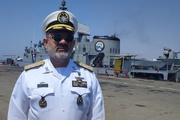
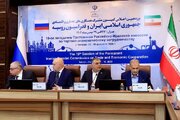
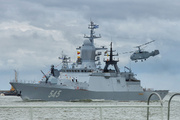
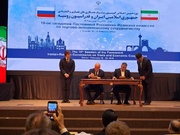
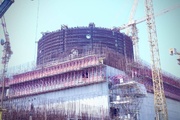
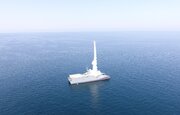
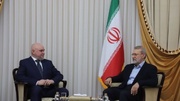









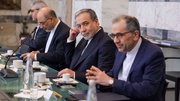
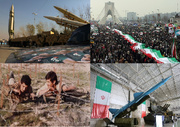
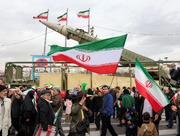
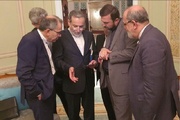
Your Comment